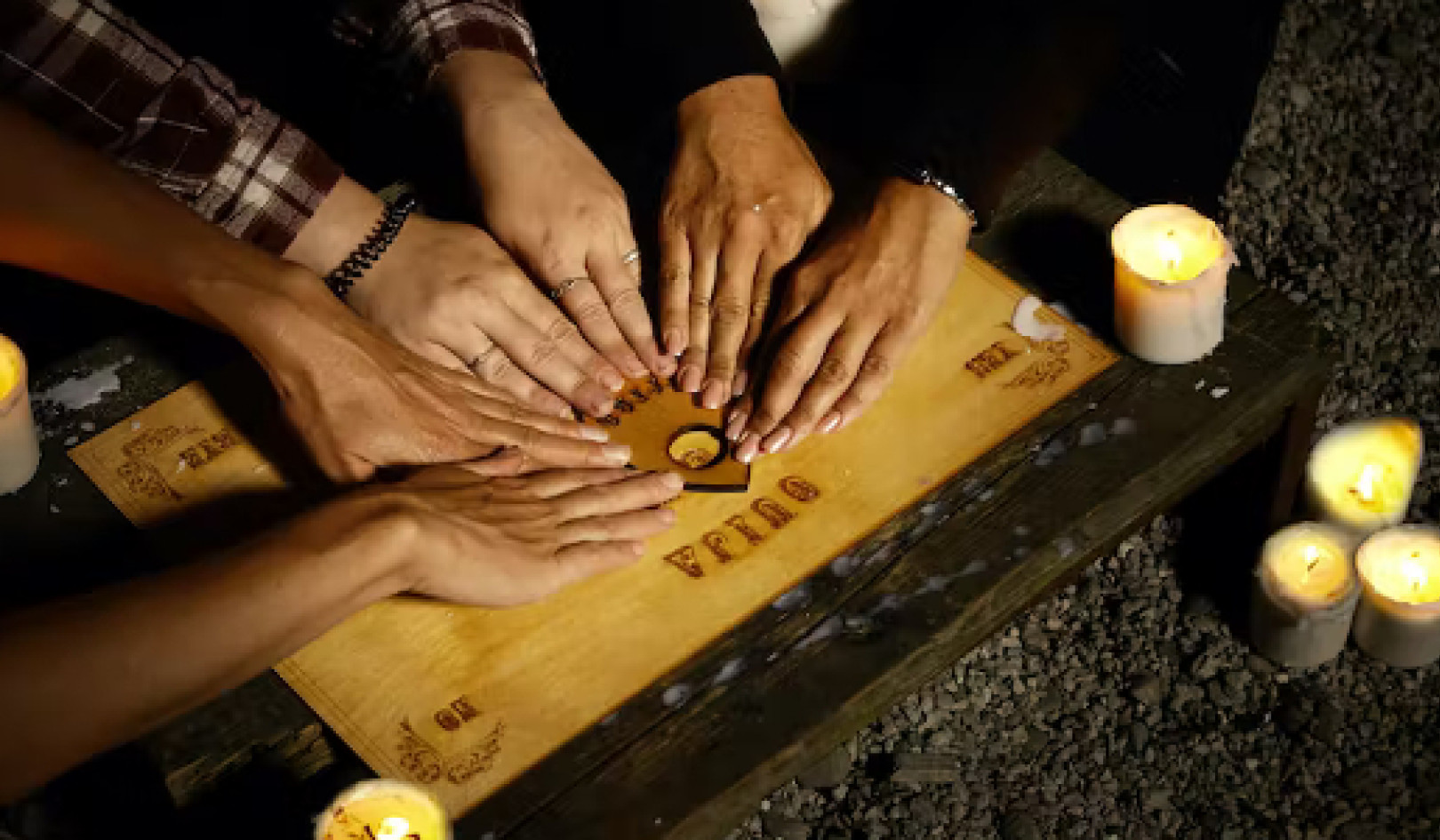
Image by Raheel Shakeel
If you recognize that someone you love might be drowning beneath the surface, the question becomes: How can you help? Of course, every situation is different, so evaluate the best approach for yourself.
However, the essence of helping others is simple: Reach out and listen, be compassionate, and get assistance as necessary.
REACH OUT AND LISTEN
If a friend or loved one seems depressed, or has shown warning signs of suicidal thoughts, the first and most important thing is to start a conversation and ask them what’s going on. Don’t assume you know what the problem is. Instead, ask them to share what’s happening beneath the surface.
In whatever way is appropriate for your relationship, do the following:
- Let them know you care.
- Ask if they’re having problems and what they are.
- Listen to what they say.
- Offer sympathy, reassurance, and kindness.
- Tell them you are on their side.
- Ask them how you can help.
If someone doesn’t want to talk about their problems, respect their privacy, but continue to reach out in friendly ways. In fact, text messages and social media can actually be a great tool for staying connected to someone who resists sharing or who isn’t around to talk with in person. Sometimes, a little note of love and understanding sent in a simple text can go a long way.
Other strategies for reaching out include inviting the person to join you in daily activities or asking if you can join them in something they do. Then simply be supportive, and with your presence let them know that you care and they are not alone.
EXPRESS COMPASSION AND UNDERSTANDING
When someone shares their problems and struggles with you, the most important response is compassion and understanding. You don’t need to solve their problems or have all the answers. You might not even know what to say. That’s okay. Sometimes it’s hard to put feelings and thoughts into words.
Here are some examples of the kinds of caring comments that can help someone going through a rough time. Feel free to rephrase these in your own way:
I’m always here for you, even when times are bad. I love you for who you are.
I’m on your side. We’re a team.
You are important to me.
I can’t imagine how hard this is for you, but I want to help in any way I can.
You are not alone.
You are a sensitive person and care so much for others.
This is an illness, and it’s nothing to be ashamed of. It can happen to anyone.
I understand that you want to solve this by yourself, but if you let me help, we’ll make it together.
I’m a good listener, so pour out your feelings. Is there anything I can do?
You make my life better just by being in it. I will always have your back.
Don’t let darkness steal the beautiful person inside. You are never a burden.
I’m not going anywhere.
I’m beginning to understand how loud silence can be. Forgive me for not standing still enough to hear yours. I’m listening.
When communicating with texts, it’s common to add positive emojis or emoticons to convey emotion or to reinforce your words. But don’t rely on pictures to get your point across. Be sure to also actually say or write what you mean.
RESIST JUDGMENT, ANGER, AND FRUSTRATION
It’s not easy to talk to someone about depression, addiction, suicide, and other issues. Just the fact that someone is willing to talk is huge. It means they feel safe enough to share things that might be embarrassing or shameful, such as mistakes they’ve made and bad things they’ve done (to themselves or others). In this situation, it can be natural to feel frustrated or even angry at someone — perhaps even for not sharing their problems sooner.
Someone’s problems might feel overwhelming and scary, or you might think the person is overreacting. Or you may feel that, despite claiming otherwise, someone isn’t being completely honest, that they are hiding or lying and refusing to admit the whole truth.
If this happens, resist the urge to judge someone or dismiss their feelings. Try not to express anger or frustration. Indeed, some reactions sound like they are trying to be helpful, but they are really ways to push someone away or invalidate their issues or feelings. Be aware if you make any comments like the following, and try to avoid them:
Take your mind off of it and just go and have fun.
There are a lot of people who have it worse than you do. Stop your pity party.
Just get out and do something. It’s all in your head.
You’ll be fine after a good night’s sleep.
Stop playing the victim and grow up already. You’ll get over it.
You have no reason to be unhappy. Things really aren’t that bad.
You don’t look depressed.
You’re doing this to attract attention. I’ve had to deal with tougher things.
No one ever said life was fair. You’re bringing this on yourself. You’re always so negative.
GET HELP
Reaching out and talking to someone who’s struggling or having suicidal thoughts might literally be a lifesaving conversation. But what about tomorrow? And the next day? If you know or suspect someone is at risk for suicide and needs help, tell someone. Get help. Now is not the time to keep secrets; your friend’s life is far too valuable.
However, while I always encourage teens to talk to someone if they or a friend is at risk, I also understand that this “simple” piece of advice can be extremely complicated, depending on the situation. For example, a friend might confide in you and ask you to promise not to tell anyone or not to tell certain people. They trust you to keep their secrets, and if you tell others, it may feel like a betrayal.
Every situation and friendship is unique, so there isn’t one right answer to this problem. I frequently advise teens to ask themselves whether breaking a friend’s trust will get the person the genuine help they need. If the answer is a clear yes, then do what’s necessary to get that help.
One situation when you should never hesitate to reach out is if someone threatens suicide and you fear they may be in immediate danger. In that situation, you should always call 911.
In situations where there is no immediate risk of harm, consider the pros and cons of all the people you might approach and choose the best ones. It might feel safest to talk to someone who doesn’t know your friend, someone outside the situation, who might have a more objective perspective and can help guide you to find resources, and so on.
Helping a friend in crisis can be really tough. They may feel alone, and you may feel alone trying to help them. Neither of you may feel safe talking to or trusting anyone you know. In that situation, call one of the national helplines listed in the resources. Text them and visit their websites. These are free and confidential, and they are staffed by qualified professionals whose job is to help people in crisis, especially when they feel they have nowhere else to turn. These professionals are trained to intervene when callers threaten to harm themselves or others (by contacting the appropriate emergency response personnel), but their main goal is to listen and provide people with the guidance they need.
The bottom line is that there is always someone you can reach out to for help, even when it feels like there isn’t.
RESOURCES: WHERE TO GET HELP
When I say you are not alone, that is an understatement. There are literally hundreds of resources and organizations available with one goal in mind: your health and happiness. If you feel like you have nowhere to turn — or don’t know how to help a friend — the following organizations offer resources free of charge.
Teen Line: 310-855-4673, 800-852-8336, https://teenlineonline.org
If you have a problem or just want to talk with another teen who understands, Teen Line is a national hotline helping teenagers address their problems before they become a crisis. It’s all about teens helping teens. This hotline is open every night from 6 PM to 10 PM PST. After hours, calls are directed to Didi Hirsh’s Suicide Prevention Center.
Trevor Lifeline: 866-488-7386, www.thetrevorproject.org
The Trevor Project is specifically focused on helping LGBTQ youth and runs a 24/7 confidential hotline for anyone in crisis or experiencing suicidal thoughts.
National Eating Disorders Association: 800-931-2237, www.nationaleatingdisorders.org
This national helpline offers support for youth struggling with any type of eating disorder.
StopBullying.gov
Learn how to stop bullying and get help by visiting www.stopbullying.gov
Substance Abuse and Mental Health Services Administration (SAMHSA): 800-662-4357, www.samhsa.gov
SAMHSA runs a confidential, 24/7 hotline offering information and treatment options for individuals facing mental and/or substance abuse disorders.
Childhelp National Child Abuse Hotline: 800-422-4453, www.childhelp.org
Staffed 24/7, this hotline offers crisis intervention and support in over 170 languages for victims of child abuse or those who suspect child abuse is occurring.
National Suicide Prevention Lifeline: 800-273-8255, https://suicidepreventionlifeline.org
On this free, confidential, 24/7 hotline, your call will automatically be routed to a trained crisis worker who will listen and can tell you about mental health services in your area. Anyone struggling with mental or emotional issues — from self-harm to PTSD — should keep this number handy.
American Foundation for Suicide Prevention (AFSP): https://afsp.org
This amazing resource provides information, resources, and crisis intervention for anyone with suicidal thoughts or feelings, or those who fear for someone else.
National Alliance on Mental Illness (NAMI): 800-950-6264, www.nami.org
This hotline provides support, information, and referrals to anyone suffering from mental illness.
Crisis Text Line: Text 741741, www.crisistextline.org
When you’re not up for talking, help is just a text away at this 24/7 counseling service.
Excerpted from the book Beneath the Surface.
©2019 by Kristi Hugstad. All Rights Reserved.
Reprinted with permission of the publisher,
New World Library. http://www.newworldlibrary.com
Article Source
Beneath the Surface: A Teen's Guide to Reaching Out When You or Your Friend Is in Crisis
by Kristi Hugstad Depression and mental illness don’t discriminate. Even in the most picture-perfect life, confusion and turmoil are often lurking beneath the surface. For a teenager in a world where anxiety, depression, and other mental illnesses are commonplace, life can sometimes feel impossible. Whether or not you or someone you love is suffering from any of these issues, it’s important to be able to recognize the warning signs of mental illness and know where to turn for help. This comprehensive guide provides the information, encouragement, and tactical guidance you need to help yourself or others experiencing. (Also available as a Kindle edition and as an Audiobook.)
Depression and mental illness don’t discriminate. Even in the most picture-perfect life, confusion and turmoil are often lurking beneath the surface. For a teenager in a world where anxiety, depression, and other mental illnesses are commonplace, life can sometimes feel impossible. Whether or not you or someone you love is suffering from any of these issues, it’s important to be able to recognize the warning signs of mental illness and know where to turn for help. This comprehensive guide provides the information, encouragement, and tactical guidance you need to help yourself or others experiencing. (Also available as a Kindle edition and as an Audiobook.)
Another book by this Author: What I Wish I’d Known: Finding Your Way Through the Tunnel of Grief
Related Books
About the Author
 Kristi Hugstad is a certified grief recovery specialist, speaker, credentialed health educator, and grief and loss facilitator for recovering addicts. She frequently speaks at high schools and is the host of The Grief Girl podcast and talk radio show. Visit her website at thegriefgirl.com/
Kristi Hugstad is a certified grief recovery specialist, speaker, credentialed health educator, and grief and loss facilitator for recovering addicts. She frequently speaks at high schools and is the host of The Grief Girl podcast and talk radio show. Visit her website at thegriefgirl.com/



























